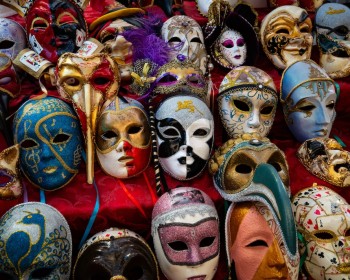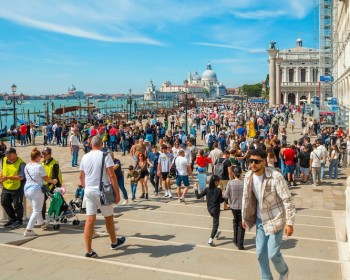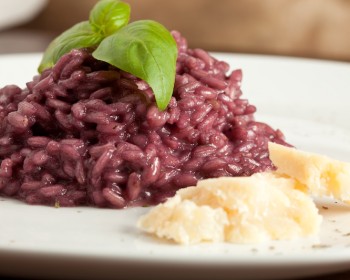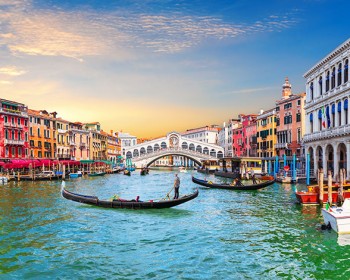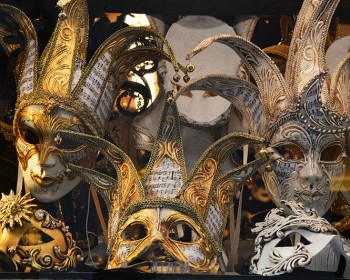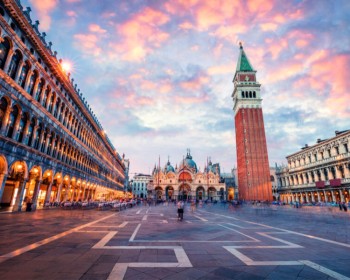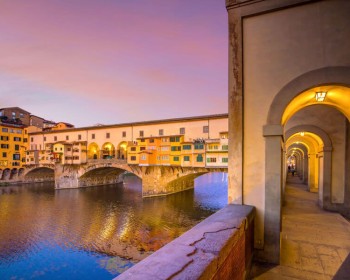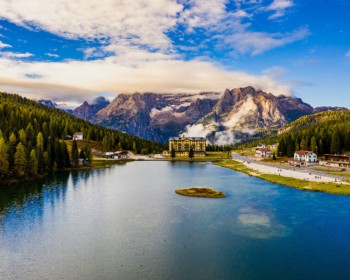Venice is one of the most romantic places in Italy and Venetians take love into great account, but there has been one Venetian who loved love more than anyone else. No worries, you are not about to read mushy stuff about love. This is a story of intrigues and secrets. This is the story of the womanizer par excellance. This is the story of Giacomo Casanova.
Ok, let’s start from the basis. Who was Casanova?
Giacomo Girolamo Casanova was born in Venice on April 2nd 1725. He was the first of six kids to the actress Zanetta Farussi and the actor and dancer Gaetano Casanova At that time, Venice was considered the capital of pleasure. Tourism was strongly fostered and vices were therefore tolerated, whereas Carnival parties, gambling houses and beautiful courtesans were actual cornerstones of everyday life. There were all the requirements for Casanova to become the eternal myth he is today.
Casanova had a hard childhood. His father died when he was eight and his mother was always busy touring around Europe in the theaters, so he was raised by his grandmother. To make things even more dramatic, Casanova suffered from severe nosebleeds. This might not seem a big deal, but we are speaking about XVIII century. The best treatment you could get was asking witches to heal you. Really. And this is exactly what Casanova’s grandma did at first.
When she finally realized that this would have never worked, he was sent to a boarding house in Padua. Being the boarding house a little expensive for his family, Casanova was placed under the care of Abbé Gozzi, his primary instructor. He hosted the young boy in his house and gave him primary education. It was also in the Gozzi household that Casanova first met Gozzi’s younger sister Bettina, who he fancied from the very start. Plot twist. Casanova discovers his lifelong passion, the opposite sex. Life would have never been the same neither for him nor for every husband in Europe.
Casanova also had an incredibly quick wit. He entered university at the age of twelve and got a degree at seventeen. Moreover, he studied moral philosophy, music, chemistry, mathematics and medicine.
When Casanova started his clerical law studies, he got in good with the old Venetian senator Alvise Gasparo Malipiero. He soon became his patron and taught the young Casanova everything about good food, good wine and most of all good-life. Malpiero did not know, but he was shaping an icon... An icon who would have betrayed him by seducing his lover shortly after, but always an icon. You might guess how their relationship ended up. Arguably, for Casanova the liaison with a pretty girl was worth being kicked off his patron’s house. Fair enough.
Casanova’s bad reputation tainted his church career. Quite predictable actually, but he did not seem to suffer so much for that. With religious career cast aside forever and ever, Casanova became a military officer for the Republic of Venice. However military life was not for him, and he gave it up very quickly. Nothing surprising, once again. According to the official version, he found the duty too boring… Come on. We know no women were allowed in the army at the time. Casanova could never bear such a burden.
At the age of 21, Casanova began his third career as a violinist. He liked his new job but got no money from it. Luckily, saving the life of a Venetian nobleman from the Bragadin family rescued Casanova from mendicancy. To show his gratefulness, the senator invited him into his household and became his patron. For the next three years, Casanova lived as a nobleman. His patron was very tolerant, but he warned Casanova that this could not last forever if he kept on leading such a dissolute life. Casanova thought it was just a joke, but it was not. At all. After the umpteenth scandal involving him, Casanova was forced to leave Venice.
After moving from a place to another for a while and spending a few years in France, Casanova finally returned to Venice in 1753. Here on 26 July 1755, he was arrested for an affront to religion and common decency. And this is all. We will not get any further about this story- you can probably guess what happened more or less… As a matter of fact, he was sentenced to five years imprisonment, without a trial and without being informed of the reasons for such a harsh sentence. Democracy, you are doing it right.
Anyway, Casanova was a resourceful person. He tried to escape twice and the second time he successfully made it. He jumped on a gondola and took his path towards Paris, which he reached the very same day… Indiana Jones? Please. This is what we call an adventure.
In Paris, he started a successful diplomatic career lasting until he wasted all his money on vices and women. His debts even brought him to jail. Again. Twice. The second time he even escaped to Switzerland to avoid imprisonment. Here, Casanova went to the monastery of Einsiedeln and considered the idea of becoming a monk. Casanova. A monk. Does it puzzle you or crack you up? We are still trying to figure it out. Of course this project was immediately abandoned when he saw a woman again… Like three minutes later, probably.
After a little stay in France, he went to England. Casanova started to consider the idea of permanently moving there since he really liked the place and people there… And women, of course. He got them all. This is quite unbelievable if you think that not even was he able to speak their language! Simply divine. Anyway, his love affairs caused him both bankrupt and venereal diseases, so he was forced to leave England broke and very ill.
Now a long period of traveling around Europe had started. Not surprisingly, all his trips had tragical outcomes because of troubles with women, money or both. Usually both, definitely. So after being pushed aside from every country on the Continent, he took the wise decision to come back home.
In September 1774, after eighteen years of exile, Casanova returned to his beloved fatherland. At first, Venice welcomed him like a celebrity… Even the Inquisitors were thrilled to discover how he managed to escape their prison so skilfully! However, Venice was too much different from when he left. Casanova saw no opportunities and no fun for him on the horizon. So he withdrew from public life. No worries, he hired a pretty housekeeper who soon became his live-in lover. Everything was alright.
Then he took diplomatic carrier back for a little while, but when his chief died he became the librarian to a chamberlain of the emperor and moved to Bohemia. The job was fine and he got a good salary, but he felt so bored that he even thought about committing suicide. You might understand that. Going from women and parties to shelves and books sounds quite depressing. By the way, he gave up suicidal thoughts to keep on living in the loving memory of his old glory. This is a little depressing as well actually, but always better than dying.
During his last years, Casanova saw the fall of the Republic of Venice and all the splendor he had left there to never get back. Disheartened, weak and terribly bored, the isolation of his last years allowed him to focus on writing his memoirs. At that time, bringing past to life was the only way for him to find little consolation from a life he felt rejected by. Moreover, it is only thanks to his Histoire de ma vie (Story of my life) that he has gone down in history. Thank you retirement boredom.
He died in Dux, on June 4th 1798, alone and upset with life. However, history would have given him his revenge consecrating him to eternal fame.
If you are still reading and this story has raised your curiosity, you shall take the chance to explore Casanova’s hometown. Our Venice tours are here exactly for it. Take the chance to step into some of his most iconic places here and there. Do not miss the chance to honor an inspiring idol for generations of playboys. He will always be the only one, by the way. We love you, Casanova.


